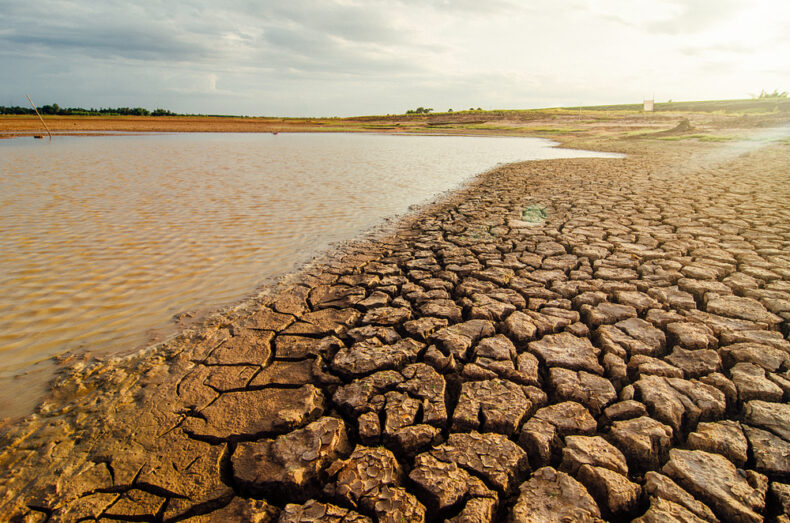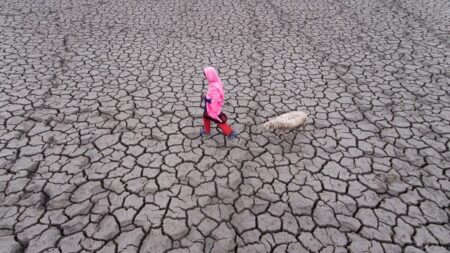In recent years, global climate change has had adverse effects on natural resources. In particular, the depletion of water is major.
Water was considered a renewable resource. However, due to global climate change, water has now become a non-renewable resource. Water is scarce in many parts of the world.
How are global climatic changes and the depletion of water linked?
From the meteorological reports, it is evident that the temperature on earth is soaring. When the temperature subsequently rises, it causes the water bodies to evaporate.
Only 3% of the earth’s water is fresh. If the temperature tends to surge, water will become scarce.
As the temperature rises, it simultaneously increases the level of water vapour, which in turn absorbs water from land. This can lead to drought and famine.

Greenhouse gases play a vital role in capturing the sun’s heat in the atmosphere. An increase in greenhouse gases like carbon dioxide can lead to an increase in precipitation. Hence, causing unforeseen rainfall.
Certainly, floods occur when there is abundant rainfall. This excess freshwater will be drained into the oceans.
Areas that are facing depletion of water
Reports say that North Africa, the Middle East, South Africa, and northern China will face tremendous water depletion. These places are located close to the equator and experience high temperatures.

Djibouti, a country in South Africa, is facing crucial water scarcity. Since it is a desert region, the annual rainfall amounts to only 155 mm.
Is it a threat to other parts of the globe?
If the global climate changes, it will also threaten other nations. NASA has reported that the ozone layer has been immensely depleted.
This can cause the sun’s UV rays to directly enter the earth. leading to the evaporation of water bodies and increases in greenhouse gases.
In 10 years, water will be insufficient for the population on earth. What could be more crucial is that scientists expect drought and famine to be caused by the depletion of water.
What measures can be taken?
The foremost step is to reduce the emission of carbon dioxide. The government should frame policies to control carbon dioxide gas. If the greenhouse gas is kept under control, water evaporation can be prevented.
It’s never too late to save water from depletion. Global nations should join together and focus on environmental changes to save resources for the future.
Read More about https://tdznkwjt9mxt6p1p8657.cleaver.live/the-ecological-benefits-of-rainwater-harvesting/













